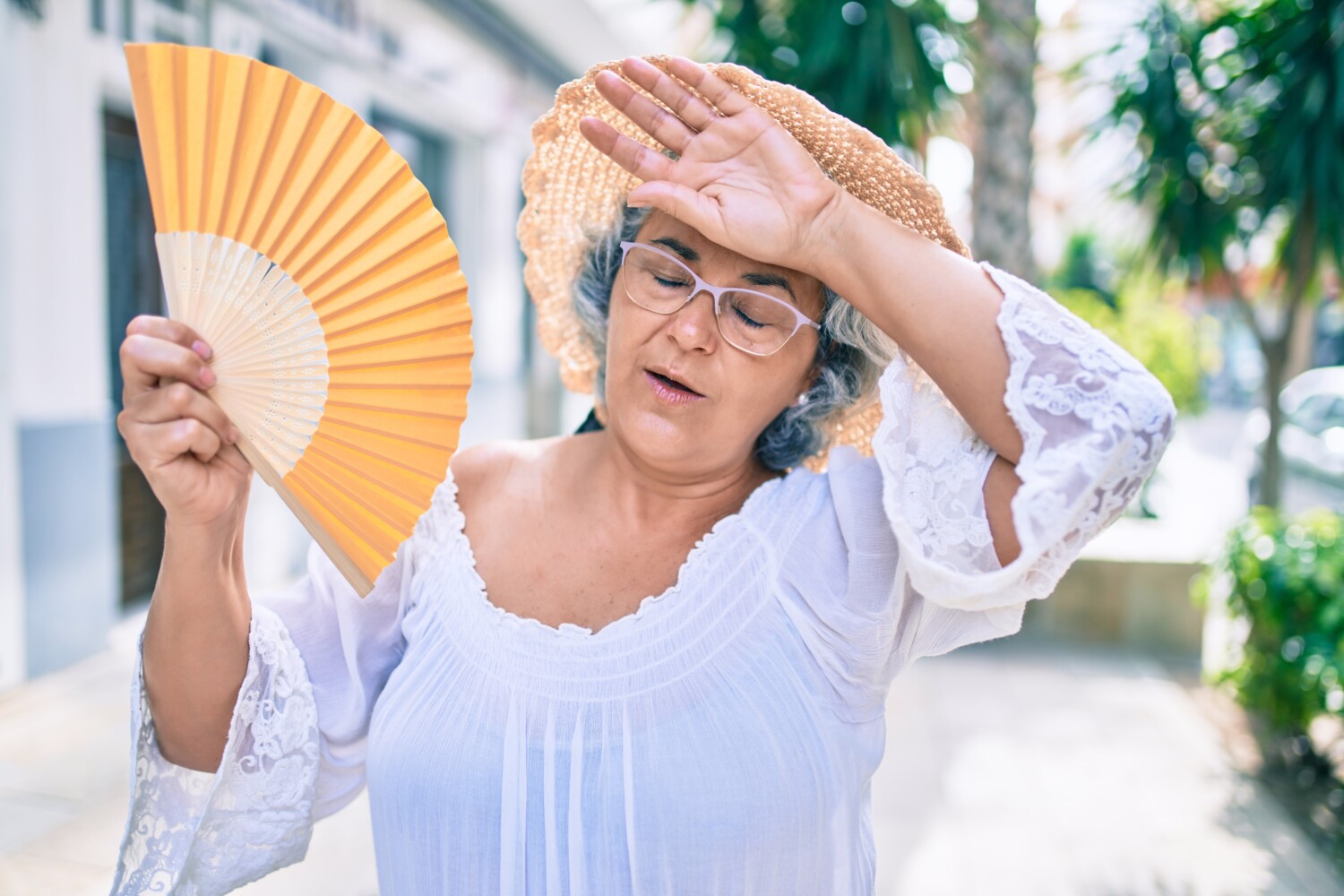It’s only natural that with summer comes heat, but how much heat is too much? Recent heat waves in the U.S. have affected 113 million Americans as temperatures were expected to reach record highs this past weekend, skyrocketing as high as 122 degrees Fahrenheit in some places.
The National Weather Service issued warnings to the public highlighting just how dangerous and life-threatening these high temperatures could be, saying they can be deadly if people don’t have access to cooling and hydration.
Now, a new study highlighting how much heat is too much when it comes to the human body has become even more important. But what actually happens to the human body when temperatures rise, and why is it so dangerous?
MORE: 7 ways to get the most out of your car’s air conditioner
The Impact of Heat on Human Physiology
The results of a study on how heat affects the body were recently presented at a conference in Edinburgh, Scotland. One of the scientists behind the study, Lewis Halsey, is a professor of life and health sciences at the University of Roehampton. Halsey conducted his research in two parts, and in the first part, he exposed 13 subjects under the age of 60 to different temperatures and humidity levels. He then monitored their breathing, heart rate, resting metabolism and core temperatures.
His research showed the subjects’ metabolic rates started to rise at 104 degrees Fahrenheit (40 degrees Celsius) and 25% humidity by an average of 35%. Despite the increase in metabolic rate, the core body temperature stayed the same at that temperature — but as he turned up the heat, that changed.

Halsey noticed that as the temperature reached 122 degrees with 50% humidity, the core temperature of each person increased by an average of 1 degree Celsius, or about 1.8 Fahrenheit. Meanwhile, their metabolic rates increased by 56% and heart rates rose by 64%.
The Role of Sweat in Temperature Regulation
Normally, our bodies sweat to help cool us down. When our core temperature rises above 98 degrees, our hypothalamus sends a signal to our sweat glands to start producing sweat and bring our temperature back down.
However, the sweat itself doesn’t actually cool you down — it’s the evaporation of the sweat off your skin that actually creates the cooling effect. That vaporization takes energy, and when your body heat converts sweat into vapor, you lose heat and are able to cool down. Neat, right?
Well, we hate to be the ones to break it to you, but in his experiments, Halsey found that at 122 degrees not even sweat helped to cool the body down.
MORE: The Best Bedroom Air Conditioner

“Being able to sweat is a bit of a superpower — unless it’s very humid, and then the sweating mechanism doesn’t work, because the sweat doesn’t go anywhere,” he told NBC News. “It just builds up on the skin.”
He believes that if his subjects had continued to be exposed to the 122-degree temperatures for a long time, they may not have survived.
“They’d have died in the end, because their core temperature would increase and increase,” Halsey said. “The body would be struggling to dump the heat.”
In his more recent study, Halsey measured heart rates at scorching 122-degree temperatures and 25% humidity on 24 participants. He found that on average, women’s heart rates rose more than men’s.

As with all new studies, caution must be used in applying the results and making generalizations until there is scientific consensus. Not all researchers agree that metabolism rises when heat levels do, and if it is true, further research must be done to understand why the metabolic change happens.
Halsey’s research is ongoing, too. But if it’s true that humans have an upper limit of temperatures we can withstand, this information may have implications for work, sports, medicine and international travel as the planet heats up.
How to Protect Yourself From Excessive Heat
Following the reveal of this research, Kim Knowlton, an assistant clinical professor of environmental health sciences at Columbia University, stresses the importance of not trying to brave the heat — especially for elderly people, pregnant women, infants and people with pre-existing heart and lung conditions.
“If you feel like you’re faint or dizzy or you feel sick, take it really seriously,” Knowlton told NBC. “Don’t be a hero and keep forging through the heat.”
According to the National Weather Service, heat is one of the top weather killers in the U.S. However, heat-related deaths are preventable when proper measures are taken. For example, if you work outdoors, be sure to take breaks in the shade and stay hydrated. When it comes to cars, do not leave children or pets alone. Lastly, when temperatures are high, limit or avoid strenuous exercise or outdoor activities and drink plenty of water.
This story originally appeared on Simplemost. Check out Simplemost for additional stories.


